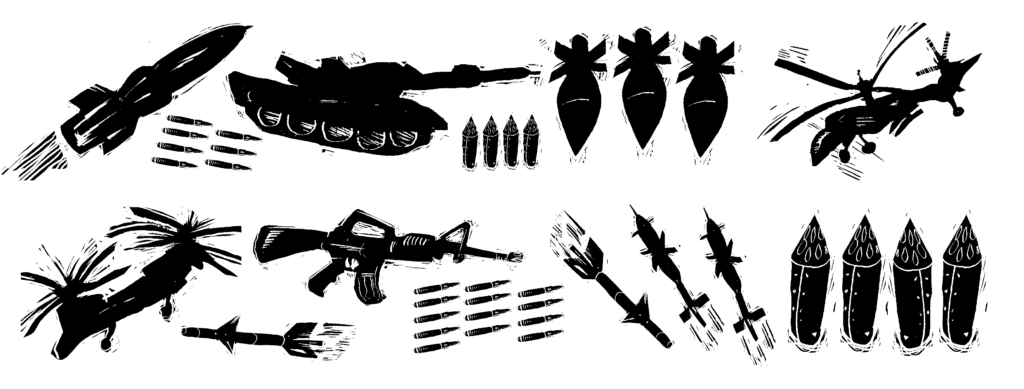At the end of November, President Trump appeared on the Bill O’Reilly show and said that his administration was working to designate drug cartels in Mexico as terrorist groups. A little more than a week later, US Attorney General William Barr arrived to Mexico. He met with Mexican President Andrés Manuel López Obrador, Foreign Minister Marcelo Ebrard, and the members of Mexico’s Security Cabinet, which includes the Minister of Defense, the head of the Marines, and the Secretariat of Public Security.
Following the meeting in Mexico, Trump tweeted, saying everything was ready to make the designation of cartels as terrorists, but that out of respect for López Obrador’s request, “we will temporarily hold off on this designation.” It appears that the issue has cooled off for now. But designating cartels terrorist groups is something Washington can do unilaterally at any time, as they have already done with dozens of groups worldwide.
It’s worth considering the ramifications of this designation, which remains latent despite its momentary deactivation. “What the War on Terror paradigm is going to offer Mexico–all it’s going to offer–is more violence,” said Dr. Sondre Lindahl, a terrorism expert at Østfold University College in Norway.

Designating cartels as terrorist groups will allow the United States to treat people who are suspected of supporting or working for said groups as unlawful combatants. “This means that you can send them to Guantanamo Bay, because they actually don’t have any rights as human beings,” said Lindahl. “It opens up the scope of what the US can do to these people without any formal judicial review or oversight, because they are terrorists.”
We cannot forget that Trump said during the election campaign that he had no problem with family members of people considered terrorists being killed or tortured during interrogation.
According to Lindahl, the possibility of Mexicans being tortured by US agents in Guantánamo or clandestine US jails (known as black sites) is just one facet of what the designation would mean. Lindahl said he doubts that US troops would openly enter Mexico as part of an intervention, but that a terrorist designation for cartels would open the possibility of more clandestine operations.
The primary strategy of the war on terror is to overpower the enemy using violence. “And what we see there is that it won’t work,” said Lindahl. “The war on terror has been a gigantic failure, it has failed on its own terms.”
The designation of cartels as terrorist groups will certainly be complicated by the porosity of the cartels and government institutions, some of which have been recipients of equipment, training and other assistance from Washington under as part of the Merida Initiative. The legal cases against Genaro García Luna and Tomás Yarrington are examples of that porosity.
García Luna was the head of Mexico’s Secretariat of Public Security (SSP), the agency in charge of the Federal Police, during the presidency of Felipe Calderón (2006-2012). It was during Calderón’s term that the War on Drugs in Mexico began in earnest, and the US and Mexico signed the Mérida Initiative, through which billions of dollars from the US were devoted to militarizing its southern neighbor.
On Monday, December 9th, 2019, García Luna was detained in Dallas, Texas. An indictment filed in a District Court in Eastern New York accuses García Luna of cocaine trafficking in the period before, during and after his tenure as head of the SSP. The US Department of Justice alleges that Garcia Luna received multi-million dollar bribes in exchange for impunity for the Sinaloa Cartel, the organization famously run by the powerful trafficker “El Chapo” Guzman.
For years, Mexican journalists have documented how Garcia Luna conspired with organized crime, all while sending the Federal Police out to make war on the Mexican people. García Luna could be tried as a war criminal, but a legal process in the United States that focuses only on five kilos of cocaine could silence him for good.This would effectively cover up any possible testimony regarding much more serious crimes.
Tomás Yarrington’s case is another example of the relationship between the cartels and the Mexican government.The ex-governor of Tamaulipas is currently in federal custody in Texas. Accusations contained in the indictment against Yarrington link him to Los Zetas and the Gulf Cartel, rival cartels that are among the most dangerous in Mexico. The indictment shows how he helped to organize the flow of prohibited substances in exchange for money. Much of this business was done in cash, but he also invested in houses and airplanes, and deposited money in Texas banks.
The Yarrington trial has already been pushed back six times. It will be politically costly for politicians and banks on both sides of the border when what everyone in México comes out in court: that cartels can’t operate without close cooperation with public officials and the financial sector.
Let there be no mistaking that suitcases full of “narco” dollars are won through massacres and disappearances, carried out by state security forces and paramilitaries. I’ve argued elsewhere that that violence can be functional to the interests of Washington and big capital, as it weakens popular capacity to rebel against hyper-exploitation, extractivism and quotidian oppression.
As I wrapped up the interview with Lindahl, the researcher ventured a question: “Does Mexico need more violence to solve its drug problem?” At this stage, the answer is obvious.
Author Bio
Dawn Marie Paley is the author of Drug War Capitalism and the editor of Toward Freedom. A version of this column appeared in La Jornada.
